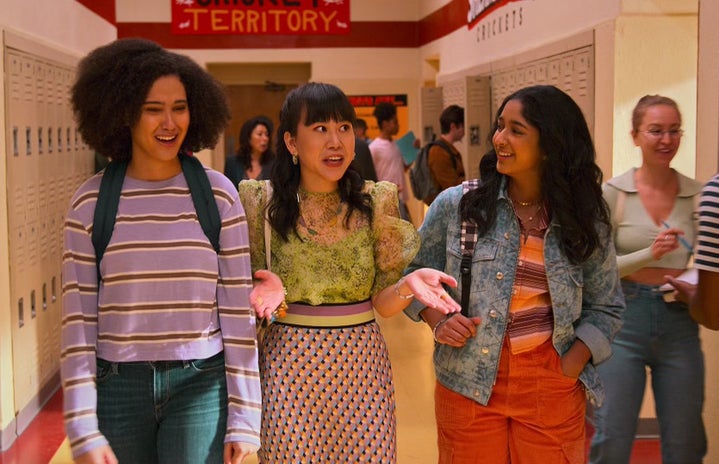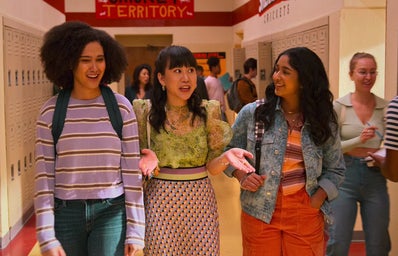In December 2022, a TikToker by the name of Jasmine made a video calling out Mindy Kaling, once the favourite daughter of the South Asian community, saying, “Mindy Kaling, just because you’re an Indian loser, does not mean all Indians are losers”. The now viral TikTok is just one of the many examples of people being mad at Kaling in recent years.
Kaling got her break after The Office producer hired her as a writer-performer after reading a spec script she wrote, making her the only woman and person of colour on the staff of eight. She worked her way up to directing an episode of the show and eventually became an executive producer in season 8. Later, she signed a deal with Universal Television, which included developing a new show that she would write and star in. In September 2012, Fox aired a show called The Mindy Project, a romantic comedy show created by, and starring Mindy Kaling, making her the first South Asian woman to lead a major network show. The show became a stepping stone for further South Asian representation and was the first step in Kaling becoming the media mogul she is now. She would go on to write two books called ‘Is Everyone Hanging Out Without Me? (and other concerns)’ and ‘Why Not Me?’, both of which ended up being New York Times Bestsellers with the latter occupying the No.1 spot. In recent years, she has created more shows primarily with a South Asian lead like Late Night, Never Have I Ever, and Sex Lives Of College Girls.
In January of this year, HBO released Velma, an adult-oriented Scooby Do spin-off, with Mindy Kaling as an executive producer and voicing the titular role. The show was released to widespread criticism. The excruciatingly predictable one was from the conservative corners of the media for reimaging some of the characters as people of colour, with most notably Velma being reimagined as Indian. The other criticism came from feminists and people of colour, particularly South Asian women. The show was called out for portraying another South Asian female character as a self-loathing nerd pining after a white man, who is, at best, indifferent to her culture, or worse hates it and looks to distance her from it.
This isn’t the first time that Kaling’s work has faced this kind of criticism. In May 2013, Jezebel published an article titled, ‘Mindy Kaling Only Makes Out With White Guys on The Mindy Project‘ talking about how all the love interests on her show were white. The criticisms against Velma reignited the conversation about Kaling’s previous and even recent work. Both Never Have I Ever and Sex Lives of College Girls have South Asian women as the protagonist or part of the lead ensemble, with both sharing the same Kaling-esque characteristics of being nerdy women who either shun their culture or treat it as a joke. People have also talked about signs of apparent conservativism in Kaling’s own life, with her once saying that ‘The Office’ wouldn’t be successful now because of cancel culture. To make things worse, her brother released a book called ‘Almost Black‘, where he talked about pretending to be black to get into college and is supposed to make a case against affirmative action.
It is completely warranted to critique someone’s work and some of the criticism against Kaling is important and does shine a light on internalised racism within racial minorities. However, the vitriol against her lacks nuance. Kaling has talked before about writing from her own experience. When asked about the criticism that her love interests on her show were largely white men, she said, “White guys were the ones who hit on me, Indian men didn’t.” When someone writes from their own lived experiences, it is obvious that whatever they write will not be representative of an entire community. Yet, this is the demand that is put on creators from minority communities(it is important to note that on Velma, Kaling is neither a showrunner nor a writer-a Caucasian man is). This is an unfair ask that they will eventually fail at. The anger at Kaling stems from the fact that there is a dearth of South Asian female characters outside of the Kaling universe, leading to a fear that these characters might end up creating or upholding a lot of stereotypes. This isn’t a problem white creators face. No one watches Emily in Paris and says how that has set White Americans back. The solution to the Mindy Kaling problem isn’t to drag a woman of colour, who has and still is trying to navigate an industry dominated by white men, through the dirt. It is not necessarily Kaling’s job to represent every facet of an entire community because it is a task that simply isn’t possible. Instead, we need a diverse range of voices to talk about their experiences as South Asian women because we are not a monolithic community and treat Kaling’s characters as just one of the many.

